Filter by

Regional Science Matters: Studies Dedicated to Walter Isard
This volume is a collection of fresh and novel contributions to regional science. They commemorate the scientific inheritance of the founding father of regional science, the late Walter Isard. All papers are written by well-known scholars in the field and serve to highlight the great importance of regional science theory and methodology for a better understanding of current spatial and environm…
- Edition
- -
- ISBN/ISSN
- -
- Collation
- -
- Series Title
- -
- Call Number
- -
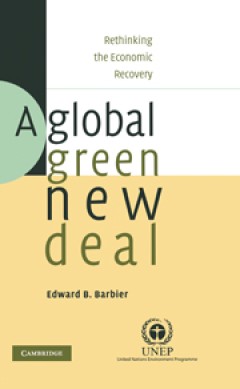
A Global Green New Deal Rethinking the Economic Recovery
Meeting the short run challenges of reviving the worldwide economy need not mean sacrificing long run economic and environmental sustainability. A Global Green New Deal (GGND) is an economic policy strategy for ensuring a more economically and environmentally sustainable world economic recovery. Reviving growth and creating jobs should be essential objectives. But policies should also aim to re…
- Edition
- -
- ISBN/ISSN
- 9780511844607
- Collation
- -
- Series Title
- -
- Call Number
- -

A Geological Manual
Henry De la Beche (1796–1855) was a geologist who published widely on various aspects of this science and was elected to the Royal Society in 1823. He was involved with the Ordnance Survey maps of Britain, and became president of the Geological Society in 1847. De la Beche was also instrumental in the 1851 opening of two influential institutions: the Museum of Practical Geology and the School…
- Edition
- -
- ISBN/ISSN
- 9780511973307
- Collation
- -
- Series Title
- -
- Call Number
- -
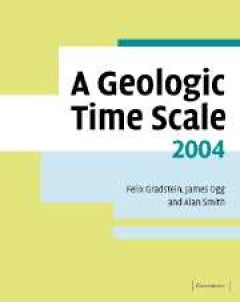
A Geologic Time Scale 2004
An international team of over forty stratigraphic experts have helped to build the most up-to-date international stratigraphic framework for the Precambrian and Phanerozoic. This successor to A Geologic Time Scale 1989 by W. Brian Harland et al. (CUP 0521 387655) begins with an introduction to the theory and methodology behind the construction of the new time scale. The main part of the book is…
- Edition
- -
- ISBN/ISSN
- 9780511536045
- Collation
- -
- Series Title
- -
- Call Number
- -
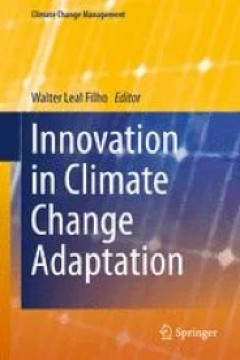
Innovation in Climate Change Adaptation
This book introduces innovative approaches to pursue climate change adaptation and to support the long-term implementation of climate change policies. Offering new case studies and data, as well as projects and initiatives implemented across the globe, the contributors present new tools, approaches and methods to pursue and facilitate innovation in climate change adaptation.
- Edition
- -
- ISBN/ISSN
- 978-3-319-25812-6
- Collation
- IX, 388
- Series Title
- -
- Call Number
- 330 INN

A Geognostical Essay on the Superposition of Rocks in Both Hemispheres
The explorer and multi-disciplinary scientist Alexander von Humboldt (1769–1859) was a prominent figure in the European scientific community of the eighteenth and nineteenth centuries and the first to make a scientific survey of South and Central America. His travels alone brought him widespread recognition, but the extensive field notes and research he undertook were developed further on his…
- Edition
- -
- ISBN/ISSN
- 9781139226875
- Collation
- -
- Series Title
- Cambridge Library Collection - Earth Science
- Call Number
- -

Global Citizenship Education Critical and International Perspectives
This open access book takes a critical and international perspective to the mainstreaming of the Global Citizenship Concept and analyses the key issues regarding global citizenship education across the world. In that respect, it addresses a pressing need to provide further conceptual input and to open global citizenship agendas to diversity and indigeneity. Social and political changes brought …
- Edition
- -
- ISBN/ISSN
- -
- Collation
- -
- Series Title
- -
- Call Number
- -
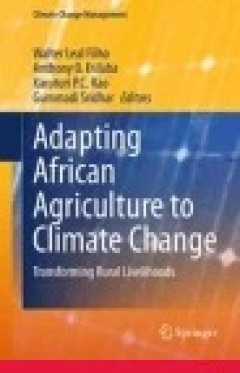
Adapting African Agriculture to Climate Change: Transforming Rural Livelihoods
This book summarizes the evidence from different African countries about the local impacts of climate change, and how farmers are coping with current climate risks. The different contributors show how agricultural systems in developing countries are affected by climate changes and how communities prepare and adapt to these changes.
- Edition
- Ed. 1
- ISBN/ISSN
- 978-3-319-13000-2
- Collation
- XI, 233
- Series Title
- Climate Change Management
- Call Number
- 551.6 ADA a

A Gardener's Year
H. Rider Haggard (1856–1925) is best known as the successful writer of adventure stories with exotic backgrounds such as King Solomon's Mines. However, he also served on a number of royal commissions, and in managing his wife's Norfolk estate became a recognised expert on agricultural matters. His A Farmer's Year (1898, also reissued in this series), recounts the work of the farm, together wi…
- Edition
- -
- ISBN/ISSN
- 9781139176651
- Collation
- -
- Series Title
- -
- Call Number
- -
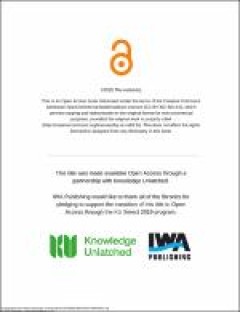
Computational Hydraulics
Computational Hydraulics introduces the concept of modeling and the contribution of numerical methods and numerical analysis to modeling. It provides a concise and comprehensive description of the basic hydraulic principles, and the problems addressed by these principles in the aquatic environment. Flow equations, numerical and analytical solutions are included. The necessary steps for building…
- Edition
- -
- ISBN/ISSN
- 9781780400457
- Collation
- -
- Series Title
- -
- Call Number
- -
 Computer Science, Information & General Works
Computer Science, Information & General Works  Philosophy & Psychology
Philosophy & Psychology  Religion
Religion  Social Sciences
Social Sciences  Language
Language  Pure Science
Pure Science  Applied Sciences
Applied Sciences  Art & Recreation
Art & Recreation  Literature
Literature  History & Geography
History & Geography